Govt. report: KFOR, EULEX in Priština's service
In its report sent to MPs on Friday, the Serbian government states that international missions in Kosovo "placed themselves in the service of Priština".
Friday, 28.10.2011.
13:53

In its report sent to MPs on Friday, the Serbian government states that international missions in Kosovo "placed themselves in the service of Pristina". The state will "in the coming period do everything to protect the interests of the republic in Kosovo", said the document that will be debated in the Serbian parliament on November 2. Govt. report: KFOR, EULEX in Pristina's service NATO troops in the province, KFOR, and the EU mission, EULEX, are "in the service of Pristina" - i.e., the Kosovo Albanian authorities - despite warnings not to undertake any activities after September 16 that would jeopardize their neutrality. This included providing conditions for Pristina to enable the presence of "Kosovo customs and police workers" at the administrative crossings of Brnjak and Jarinje. The report describes events that preceded the incident at the line on September 27, and says that the government "did everything" to protect the country's interests in Kosovo, sending its message that "the unity demonstrated at the highest level should be an indicator to our people in Kosovo and Metohija that their state is fully representing and defending their interests". The document, detailing the government's activities aimed at "stabilizing" the situation in Kosovo and Metohija, also says that the government's constant calls to solve problems in a peaceful manner "gain in value when the overall situation is taken into consideration", and adds that any escalation of conflict in the north of the province "transfers south of the Ibar River", where the citizens of Serb ethnic live surrounded, and where "precisely they would become victims of violent acts of (ethnic) Albanian extremists". "At a time when the Republic of Serbia is facing great pressure, regardless of where it comes from, to withdraw its institutions from Kosovo and Metohija, putting partisan interests to the forefront would not contribute to solving the problems in Kosovo and Metohija," warned the report. It specifies that interests of Serbs in Kosovo are being "represented and protected" by those means that are at the government's disposal, "bearing in mind the political and security context defined with UNSC Resolution 1244 and the military-technical agreement from Kumanovo". (file) The Jarinje incident The report contains a list of events in the southern province, including the use of stun grenades, tear gas and rubber bullets by KFOR against civilian protesters at the Jarinje checkpoint. Bursts of gunfire were also heard at one point during the incident, which caused the crowd to disperse, because it was obvious KFOR was using live ammunition against unarmed people, the report states. Medical teams arrived at the scene shortly after to provide assistance, and KFOR troops fired on the staff as they were helping the injured, the government pointed out. A man was wounded while providing medical assistance to one of the casualties. "Seven injured Serbs, six of whom had serious gunshot wounds, were hospitalized in Kosovska Mitrovica. Two of them underwent surgery," the report adds. KFOR claims of using only tear gas and rubber bullets in self defense were proved false by a detailed report from doctors of the Kosovska Mitrovica hospital, which proves the wounded citizens were hit by live ammunition, the government asserted. The document also notes that after the first information about events at the Jarinje administrative crossing, the government called on the people to stay calm and ignore provocations. The dialogue Because of this, the seventh round of the talks between Belgrade and Pristina, which was to begin in Brussels that day, was postponed. At the same time, Belgrade stated willingness to continue the talks, but after a solution to the crisis in Kosovo was found. The report says that the government insisted through its representatives to meet with EULEX and KFOR officials in order to defuse the situation and maintained contact with local authorities to determine facts and the most efficient way to assist the people, but the meeting did not happen that day, despite the constant requests. The document adds that later, after a series of meetings with northern Kosovo local officials, where they discussed ways of providing food supplies to the crisis affected area, the government sent 100 tonnes of flour to northern Kosovo. The whole time, the Serbian government insisted on a meeting with EULEX top officials to get the mission to stop providing logistics support to the officials of the so-called "Republic of Kosovo" at the Jarinje and Brnjak checkpoints, but the meeting did not occur and the explanation was that there would be no meetings while the roadblocks were in place, obstructing the freedom of movement. The government then lists the events of October 18, when KFOR Commander Erhard Drews and local officials agreed to allow unobstructed supply to the international forces at the Jarinje and Brnjak crossings, followed by the meeting the next day, that ended in failure because of KFOR's ultimatum to allow passage for EULEX officials as well, which was not an issue. "The problem was still the presence of Kosovo customs and police officers and the support, in the sense of transport, they received from EULEX," the document reads. Presidents of northern Kosovo municipalities told KFOR representatives the people at the barricades would allow their troops to go through to the two administrative crossings and the Notting Hill camp in order to provide food, water and fuel supply and regular shifts, while KFOR Deputy Commander Johann Luif came to set an ultimatum, demanding that Serbs let EULEX pass as well, the government explains. The meeting was attended by EULEX Deputy Head Andy Sparkes and UNMIK deputy chief Robert Sorenson. KFOR launched an operation on October 20. Two convoys with strong forces were sent in the direction of the Brnjak administrative crossing. One stopped in front of the barricades in the village of Zupce and the second in the village of Jagnjenica, and KFOR soon starting removing the barricades. That morning, KFOR troops used an armored transporter to move one truck used to block the road in Jagnjenica and threw tear gas at the protesters. The situation threatened to escalate. However, the government stresses, the people remained composed and their peaceful reaction to the violent removal of the barricades did not lead to a conflict with KFOR members. An ambulance arrived to take care of those affected by the tear gas, and KFOR threatened to use force if the people did not disperse. The people responded peacefully - they sat down on the road in front of the KFOR vehicles and thus prevented them from taking down the barricades. Twenty people were injured in the confrontation, most of them from the effects of the tear gas. The government goes on to say that, even though the situation was extremely tense the entire time, the Serbian side did not at any moment cut off communication with NATO and KFOR, through the structures of the Serbian Armed Forces and the General Staff, through the Ministry of Defense, which contacted the NATO south wing, as well as the Alliance headquarters in Brussels. "These moves did not resolve the crisis completely, as it is clear it requires a complex political solution, but it did prevent its escalation and additional risks and casualties," reads the report. The government points out this and similar tensions had a negative effect south of the Ibar river, where one Serb was killed around noon the same day in the village of Dobrusa near Pec, and two people were seriously injured when they were attacked by an Albanian who had usurped their field. Misko Komatina was killed and Dejan Bogicevic and Drasko Ojdanic were injured, and EULEX took over the investigation into the case at the insistence of the Ministry for Kosovo. The cadaster The report also deals with the cadaster issue, and notes that Pristina's goal was to literally, physically take back all original documents related to the cadaster in Kosovo, since the issue has symbolic significance for Pristina of "taking back documents Serbia seized from Kosovo." The mediators exerted some pressure on Pristina to give up this concept and suggested an exchange of information which would be primarily aimed at harmonization and verification of the information contained in the so-called Kosovo cadaster, says the report. This pressure, the report concludes, was insufficient for Pristina to agree to all of Belgrade's demands, but a solution was proposed which on the one hand, stops Pristina's demands for the return of original documentation and, on the other, makes it possible to review and harmonize the information. It was agreed to exchange information (scanned copies) between the two cadaster services, which would be done through a special EU representative in Pristina, who would also be in charge of harmonizing any discrepancies in the data through expert agencies, as well as making sure both sides are adequately represented in the process. With the reservation that Belgrade will carefully monitor if and to what extent the EU, as the mediator, is honoring the guarantees given, the so-called "agreed conclusions" related to the cadaster were accepted. Taking into account the opposing positions of the two sides, the EU took on the obligation of giving political guarantees for the implementation of the arrangements, but early on, there was a highly partial interpretation of the arrangements, particularly as they pertain to the customs stamp, in favor of Pristina, reads the government report. In the EU interpretation, the arrangements also pertained to the administrative crossings in northern Kosovo, which were not part of the talks. The Serbian government on several occasions warned representatives of EULEX and KFOR not to take any actions which could jeopardize the missions' neutrality after September 16, when the temporary arrangement with KFOR expired.
Govt. report: KFOR, EULEX in Priština's service
NATO troops in the province, KFOR, and the EU mission, EULEX, are "in the service of Priština" - i.e., the Kosovo Albanian authorities - despite warnings not to undertake any activities after September 16 that would jeopardize their neutrality.This included providing conditions for Priština to enable the presence of "Kosovo customs and police workers" at the administrative crossings of Brnjak and Jarinje.
The report describes events that preceded the incident at the line on September 27, and says that the government "did everything" to protect the country's interests in Kosovo, sending its message that "the unity demonstrated at the highest level should be an indicator to our people in Kosovo and Metohija that their state is fully representing and defending their interests".
The document, detailing the government's activities aimed at "stabilizing" the situation in Kosovo and Metohija, also says that the government's constant calls to solve problems in a peaceful manner "gain in value when the overall situation is taken into consideration", and adds that any escalation of conflict in the north of the province "transfers south of the Ibar River", where the citizens of Serb ethnic live surrounded, and where "precisely they would become victims of violent acts of (ethnic) Albanian extremists".
"At a time when the Republic of Serbia is facing great pressure, regardless of where it comes from, to withdraw its institutions from Kosovo and Metohija, putting partisan interests to the forefront would not contribute to solving the problems in Kosovo and Metohija," warned the report.
It specifies that interests of Serbs in Kosovo are being "represented and protected" by those means that are at the government's disposal, "bearing in mind the political and security context defined with UNSC Resolution 1244 and the military-technical agreement from Kumanovo".
The Jarinje incident
The report contains a list of events in the southern province, including the use of stun grenades, tear gas and rubber bullets by KFOR against civilian protesters at the Jarinje checkpoint.Bursts of gunfire were also heard at one point during the incident, which caused the crowd to disperse, because it was obvious KFOR was using live ammunition against unarmed people, the report states.
Medical teams arrived at the scene shortly after to provide assistance, and KFOR troops fired on the staff as they were helping the injured, the government pointed out.
A man was wounded while providing medical assistance to one of the casualties.
"Seven injured Serbs, six of whom had serious gunshot wounds, were hospitalized in Kosovska Mitrovica. Two of them underwent surgery," the report adds.
KFOR claims of using only tear gas and rubber bullets in self defense were proved false by a detailed report from doctors of the Kosovska Mitrovica hospital, which proves the wounded citizens were hit by live ammunition, the government asserted.
The document also notes that after the first information about events at the Jarinje administrative crossing, the government called on the people to stay calm and ignore provocations.
The dialogue
Because of this, the seventh round of the talks between Belgrade and Priština, which was to begin in Brussels that day, was postponed. At the same time, Belgrade stated willingness to continue the talks, but after a solution to the crisis in Kosovo was found.The report says that the government insisted through its representatives to meet with EULEX and KFOR officials in order to defuse the situation and maintained contact with local authorities to determine facts and the most efficient way to assist the people, but the meeting did not happen that day, despite the constant requests.
The document adds that later, after a series of meetings with northern Kosovo local officials, where they discussed ways of providing food supplies to the crisis affected area, the government sent 100 tonnes of flour to northern Kosovo.
The whole time, the Serbian government insisted on a meeting with EULEX top officials to get the mission to stop providing logistics support to the officials of the so-called "Republic of Kosovo" at the Jarinje and Brnjak checkpoints, but the meeting did not occur and the explanation was that there would be no meetings while the roadblocks were in place, obstructing the freedom of movement.
The government then lists the events of October 18, when KFOR Commander Erhard Drews and local officials agreed to allow unobstructed supply to the international forces at the Jarinje and Brnjak crossings, followed by the meeting the next day, that ended in failure because of KFOR's ultimatum to allow passage for EULEX officials as well, which was not an issue.
"The problem was still the presence of Kosovo customs and police officers and the support, in the sense of transport, they received from EULEX," the document reads.
Presidents of northern Kosovo municipalities told KFOR representatives the people at the barricades would allow their troops to go through to the two administrative crossings and the Notting Hill camp in order to provide food, water and fuel supply and regular shifts, while KFOR Deputy Commander Johann Luif came to set an ultimatum, demanding that Serbs let EULEX pass as well, the government explains.
The meeting was attended by EULEX Deputy Head Andy Sparkes and UNMIK deputy chief Robert Sorenson.
KFOR launched an operation on October 20. Two convoys with strong forces were sent in the direction of the Brnjak administrative crossing. One stopped in front of the barricades in the village of Zupče and the second in the village of Jagnjenica, and KFOR soon starting removing the barricades.
That morning, KFOR troops used an armored transporter to move one truck used to block the road in Jagnjenica and threw tear gas at the protesters. The situation threatened to escalate. However, the government stresses, the people remained composed and their peaceful reaction to the violent removal of the barricades did not lead to a conflict with KFOR members.
An ambulance arrived to take care of those affected by the tear gas, and KFOR threatened to use force if the people did not disperse.
The people responded peacefully - they sat down on the road in front of the KFOR vehicles and thus prevented them from taking down the barricades.
Twenty people were injured in the confrontation, most of them from the effects of the tear gas.
The government goes on to say that, even though the situation was extremely tense the entire time, the Serbian side did not at any moment cut off communication with NATO and KFOR, through the structures of the Serbian Armed Forces and the General Staff, through the Ministry of Defense, which contacted the NATO south wing, as well as the Alliance headquarters in Brussels.
"These moves did not resolve the crisis completely, as it is clear it requires a complex political solution, but it did prevent its escalation and additional risks and casualties," reads the report.
The government points out this and similar tensions had a negative effect south of the Ibar river, where one Serb was killed around noon the same day in the village of Dobrusa near Pec, and two people were seriously injured when they were attacked by an Albanian who had usurped their field.
Miško Komatina was killed and Dejan Bogićević and Drasko Ojdanić were injured, and EULEX took over the investigation into the case at the insistence of the Ministry for Kosovo.
The cadaster
The report also deals with the cadaster issue, and notes that Priština's goal was to literally, physically take back all original documents related to the cadaster in Kosovo, since the issue has symbolic significance for Priština of "taking back documents Serbia seized from Kosovo."The mediators exerted some pressure on Priština to give up this concept and suggested an exchange of information which would be primarily aimed at harmonization and verification of the information contained in the so-called Kosovo cadaster, says the report.
This pressure, the report concludes, was insufficient for Priština to agree to all of Belgrade's demands, but a solution was proposed which on the one hand, stops Priština's demands for the return of original documentation and, on the other, makes it possible to review and harmonize the information.
It was agreed to exchange information (scanned copies) between the two cadaster services, which would be done through a special EU representative in Priština, who would also be in charge of harmonizing any discrepancies in the data through expert agencies, as well as making sure both sides are adequately represented in the process.
With the reservation that Belgrade will carefully monitor if and to what extent the EU, as the mediator, is honoring the guarantees given, the so-called "agreed conclusions" related to the cadaster were accepted.
Taking into account the opposing positions of the two sides, the EU took on the obligation of giving political guarantees for the implementation of the arrangements, but early on, there was a highly partial interpretation of the arrangements, particularly as they pertain to the customs stamp, in favor of Priština, reads the government report.
In the EU interpretation, the arrangements also pertained to the administrative crossings in northern Kosovo, which were not part of the talks.
The Serbian government on several occasions warned representatives of EULEX and KFOR not to take any actions which could jeopardize the missions' neutrality after September 16, when the temporary arrangement with KFOR expired.
















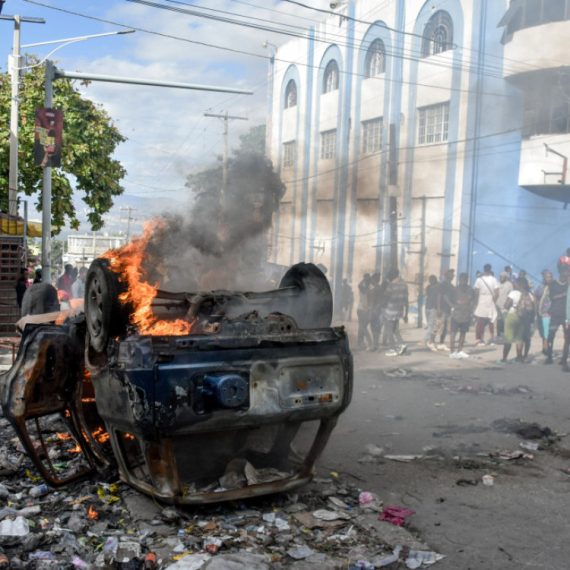
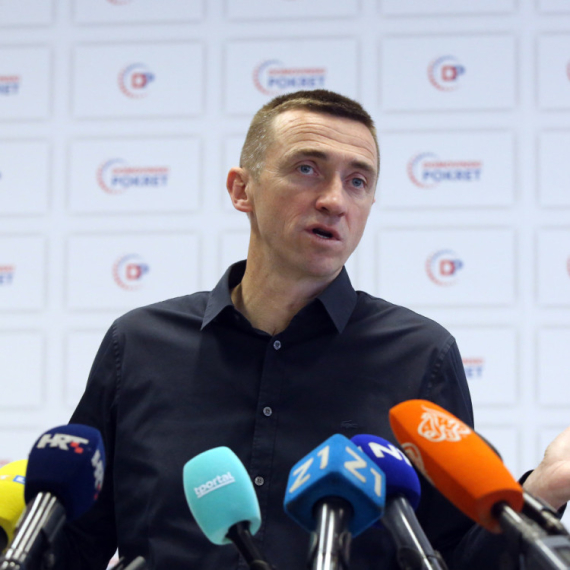
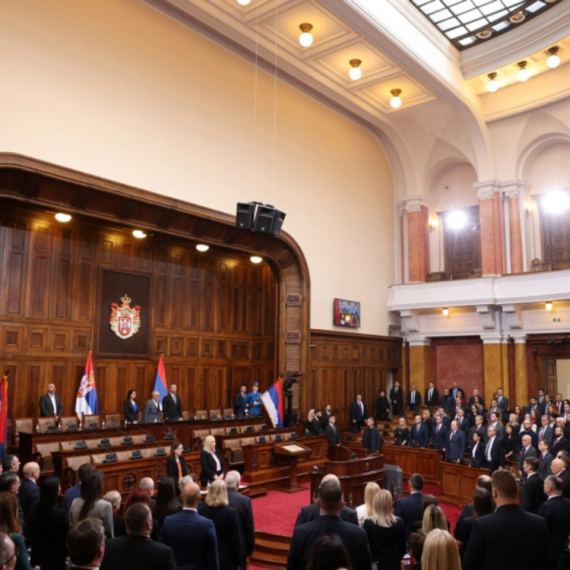


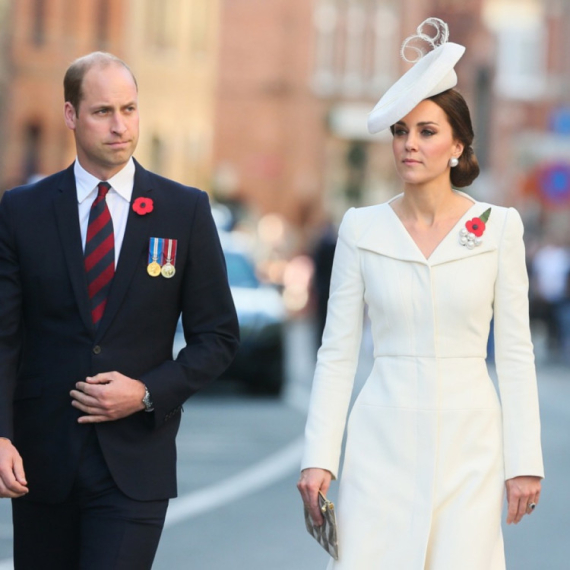

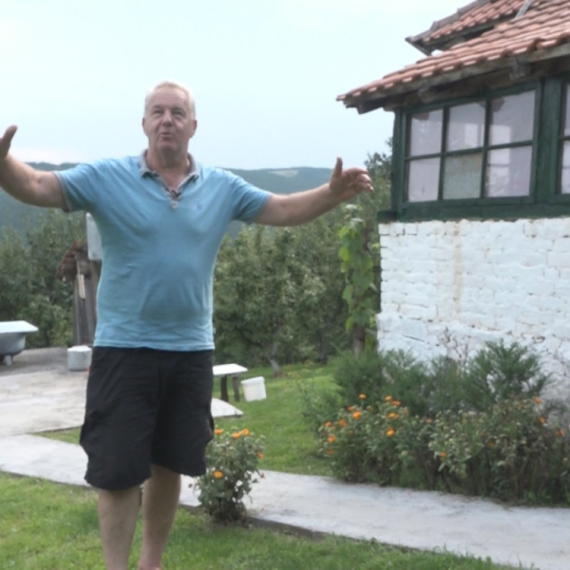

Komentari 21
Pogledaj komentare